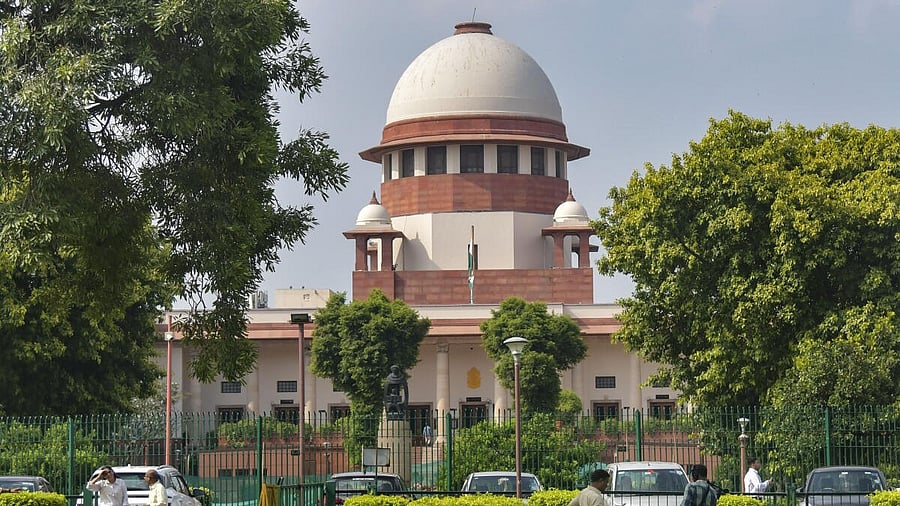
The Supreme Court of India.
Credit: PTI Photo
New Delhi: The Supreme Court said that a presumption in favour of a marriage where a man and woman have engaged in prolonged and continuous cohabitation can only be displaced by unimpeachable evidence on behalf of a party questioning such a relationship.
A bench of Justices Sanjay Karol and Prshant Kumar Mishra held the plaintiffs succeeded in establishing a valid marital relationship between their mother, Bheemakka alias Sathyakka, and the deceased Dasabovi, primarily on the basis of the oral testimony of Hanumanthappa.
In its judgment on August 25, 2025, the court dismissed an appeal of Chowdamma (dead) filed through legal representatives against the Karnataka High Court's judgment of October 28, 2010.
The HC had decreed the suit for partition in favour of plaintiffs, who claimed that after their birth, their father fell in love with another woman, Chowdamma and they were driven out of the home but their father continued to maintain relationship with them by regularly visiting them.
The plaintiff relied upon testimony of Hanumanthappa, aged 75 years and a resident of Antharagange village, Bhadravati Taluk, who in his evidence in 2005 affirmed having personal knowledge of the relationship between the deceased Dasabovi and the plaintiffs’ mother. He stated that he was acquainted with both the plaintiffs' mother and Chowdamma. He unequivocally stated that the deceased Dasabovi married the plaintiffs’ mother, Bheemakka, 57 years ago at Antharagange village, in accordance with the prevailing customs of their community.
Lending credence to the testimony, the court said, it was not tailored to suit the litigation introduced as an afterthought and his narrative appeared to be rooted in long-standing village familiarity and reflects natural continuity.
The court held that the testimony was in light of the principles laid down under Section 50 of the Indian Evidence Act, in the backdrop of paucity of documentary and contemporaneous material to conclusively establish the marital relationship.
Chowdamma relied upon the revenue records but the court pointed out that those are not proof of title, saying those only hold presumptive value and don’t confer title.
The court also said, adverse presumption under Section 114(g) of the Evidence Act is inevitable in the case as Chowdamma herself declined to enter witness box.
It pointed out that the silence of Chowdamma and her absence from the witness box were not a procedural lapse but a calculated withdrawal from scrutiny.
Emphasising that a court of law cannot offer refuge to studied silence where a duty to disclose exists, the bench said that in a case where the principal controversy turns on matters lying within her exclusive personal knowledge, the conspicuous silence of Chowdamma strikes not merely as omission but as deliberate evasion.
